Capri is undoubtedly one of the most famous tourist spots in southern Italy. This island, located in the Tyrrhenian Sea, very close to Naples and the Amalfi Coast, is a destination everyone should visit. Although it is famous for its upscale atmosphere, this lovely island offers much more. If you consider this corner of Campania your next travel destination, you cannot miss this guide with the best things to do and the top tourist attractions in Capri. You will surely discover that the “Pearl of the Mediterranean” has tons to offer.
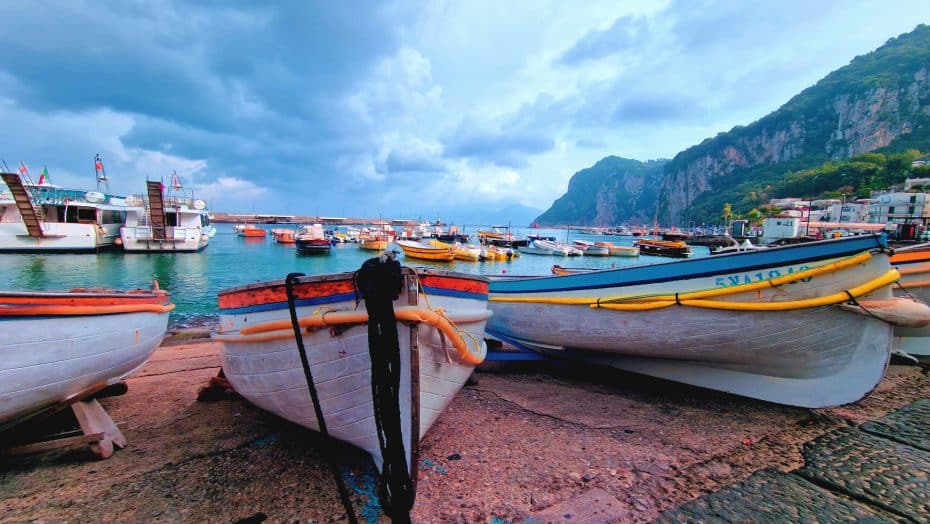
The island of Capri is synonymous with unbridled luxury, upscale hotels, A-listers and exclusive boutiques. And although this isn’t completely untrue, there’s more than meets the eye to this wonderful place. Capri also has a silent soul, hidden alleys and authentic corners. To understand its essence, you don’t necessarily need a yacht and a five-figure bank account. Its natural beauty, blue sea and endless sunsets are within everyone’s reach.
The history of L’isola di Capri is marked by its status as a playground of the rich and famous. The list of celebrities who spend their summer on the island includes politicians, moguls, writers, artists, musicians and filmmakers. The island’s first famous resident was Tiberius Augustus, the second Roman emperor. At the island’s eastern end lie the remains of the monumental Villa Jovis, the biggest of the numerous palaces from which he ruled the Empire.
Very close to Villa Jovis, there is another place dedicated to hedonism, Villa Lysis, built at the end of the 19th century by the French nobleman and writer Jacques Fersen. But perhaps the most famous Capri tourist attraction is the Blue Grotto. Grotta Azzura is a sea cave known for enchanting, impossibly bright blue waters. Other unmissable attractions on the island of Capri include the Faraglioni, the Marina Grande, the Piazzetta, Via Carmelle, the Gardens of Augustus and the Natural Arch. Continue reading this article to learn more about the top things to see in Capri, Italy.
On the island of Capri, you can find accommodation for all budgets, but remember that even the cheapest room on the island can cost you as much as a mid-range (even high-end) room elsewhere in Italy.
Capri is famous for its luxury, private villas and exclusive hotels. The rates are high, but the atmosphere is worth it. If you want to save some money on accommodation, the best thing to do is to book well in advance.
The Top Things to See in Capri, Italy
This is a list of the essential activities and unmissable attractions in Capri, so you don’t miss a thing in the Pearl of the Mediterranean.
1. Marina Grande
Marina Grande is the origin and destination of all ferries serving the island of Capri.
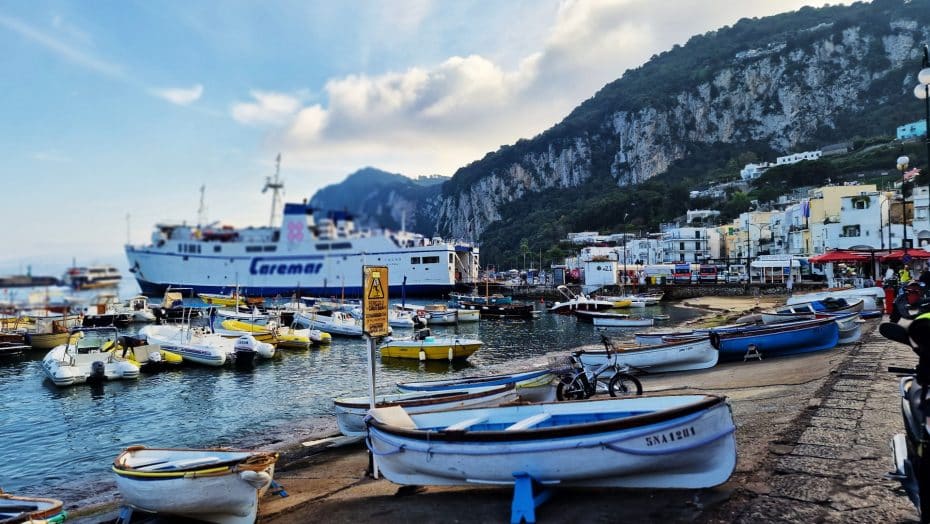
Many visitors to Capri leave Marina Grande without stopping to admire its beauty, which is a shame. This town within a town is defined by its colourful houses and fishermen’s boats moored in its bay.
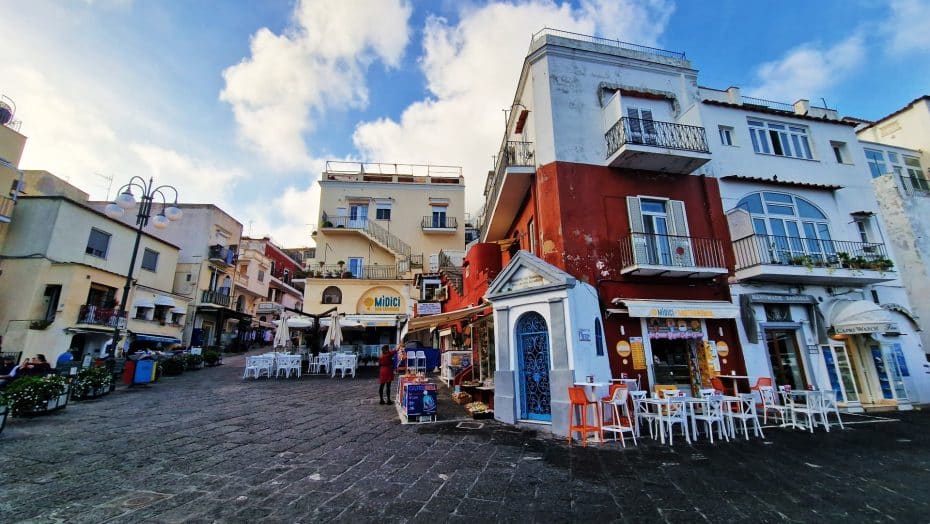
Its many taverns, small shops, restaurants and bars make it a very convenient place if you want to buy souvenirs or are looking for the best local cuisine.
Marina Grande is a recommended area to stay on the island of Capri.
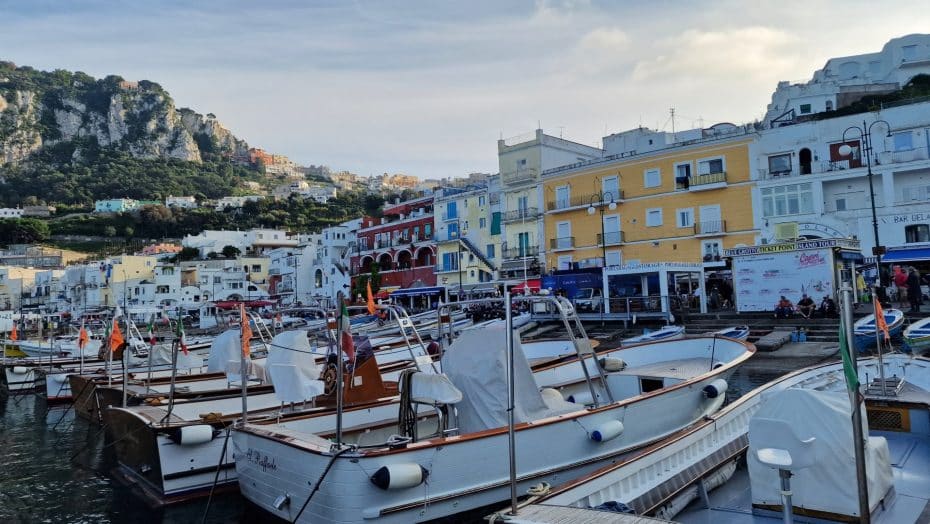
This area is also home to a public beach. This bathing spot is very popular with the locals, and the water is always clean despite its proximity to the harbour.
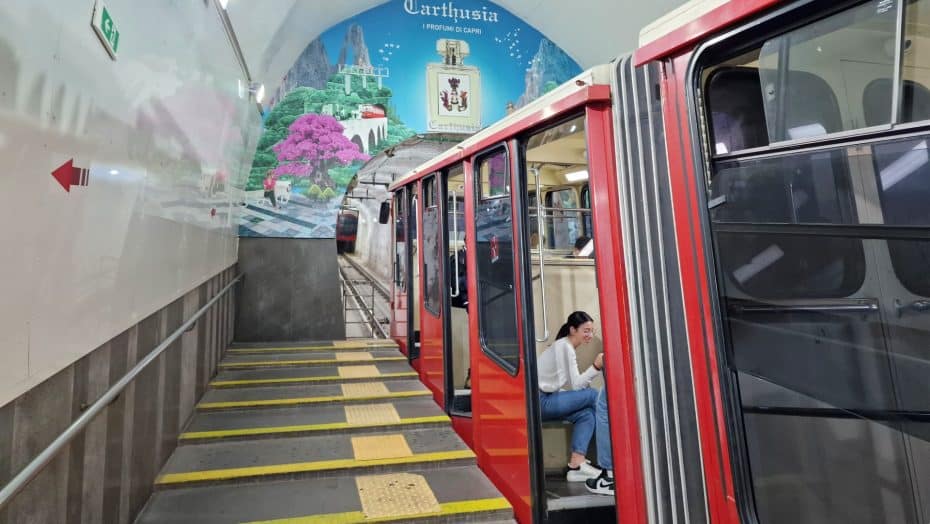
Capri’s funicular railway, which connects the area to Capri’s City Centre, leaves from the harbour. This incline railway takes tourists from the port to the famous Piazzetta, the main meeting place on the island.
As you might expect, Marina Grande is the starting point for most Capri boat tours and activities. These are some of the best rated ones:
2. Piazzetta di Capri
Known as Salotto del Mondo (the world’s living room), Capri’s Piazzetta is a unique place where monarchs, actors and common people sit side by side.
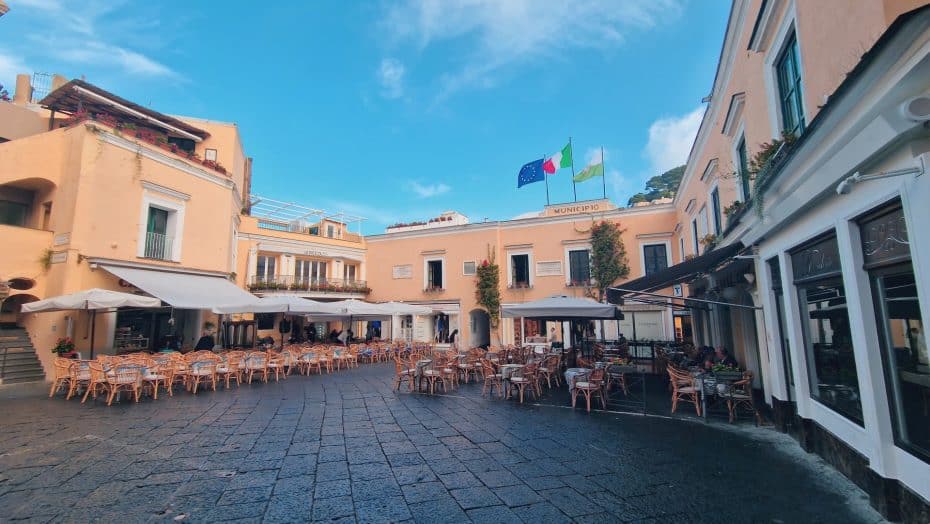
Capri’s Piazzetta, officially Piazza Umberto I, is the city’s centre and where the island’s social life takes place. It is the favourite destination for celebrities vacationing in Capri and ordinary people. Crowds are sitting on its terraces from breakfast to the last call.
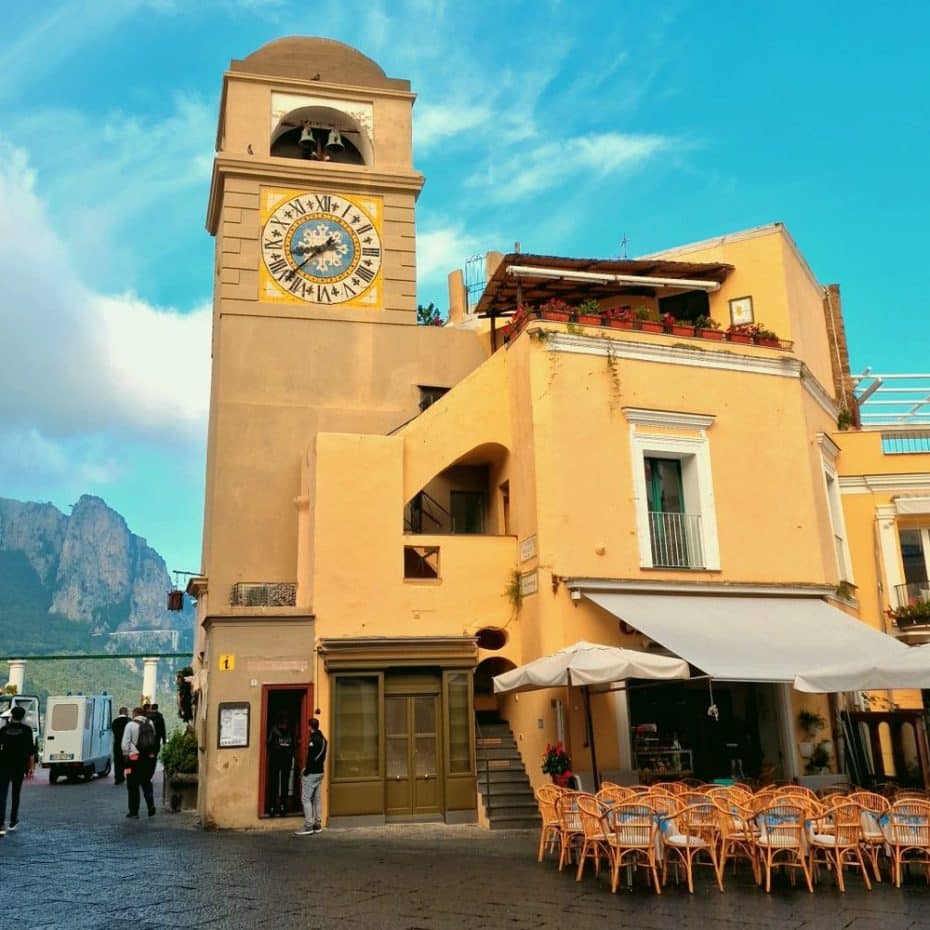
This famous place is framed by historic buildings such as the town hall and the legendary Clock Tower, as well as the town kiosk and a small tourist information office.
The square also offers breathtaking views of the Gulf of Naples, with Naples directly in front, Mount Vesuvius to the right and the island of Ischia to the left.
3. Blue Grotto
The Blue Grotto is probably the most famous tourist attraction in Capri. This marine cave is located on the island’s northwestern coast.
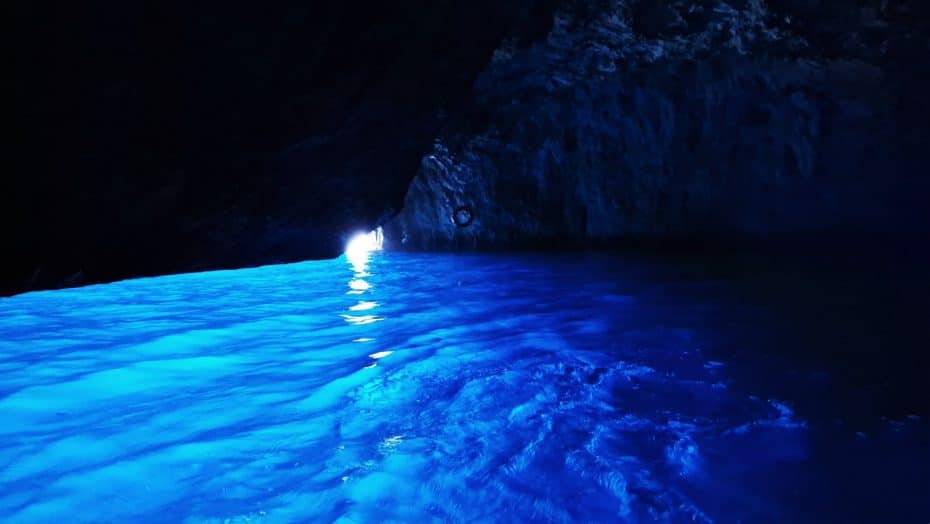
Grotta Azzurra is famous for its intense, brilliant blue waters that attract visitors from all over the world.
Known to the Romans, as evidenced by the ancient statues found at its bottom, it is believed that the Blue Grotto was the personal pool of emperor Tiberius. The cave is believed to have served as a nymphaeum (a place of leisure linked to the cult of water) for the nearby Villa Gradola.
The Blue Grotto is 60 metres long, 25 metres wide, and around 150 metres deep. The magical light in the grotto comes from two sources: a small hole in the rock used to access the cave and a larger submerged hole responsible for most of the lighting.
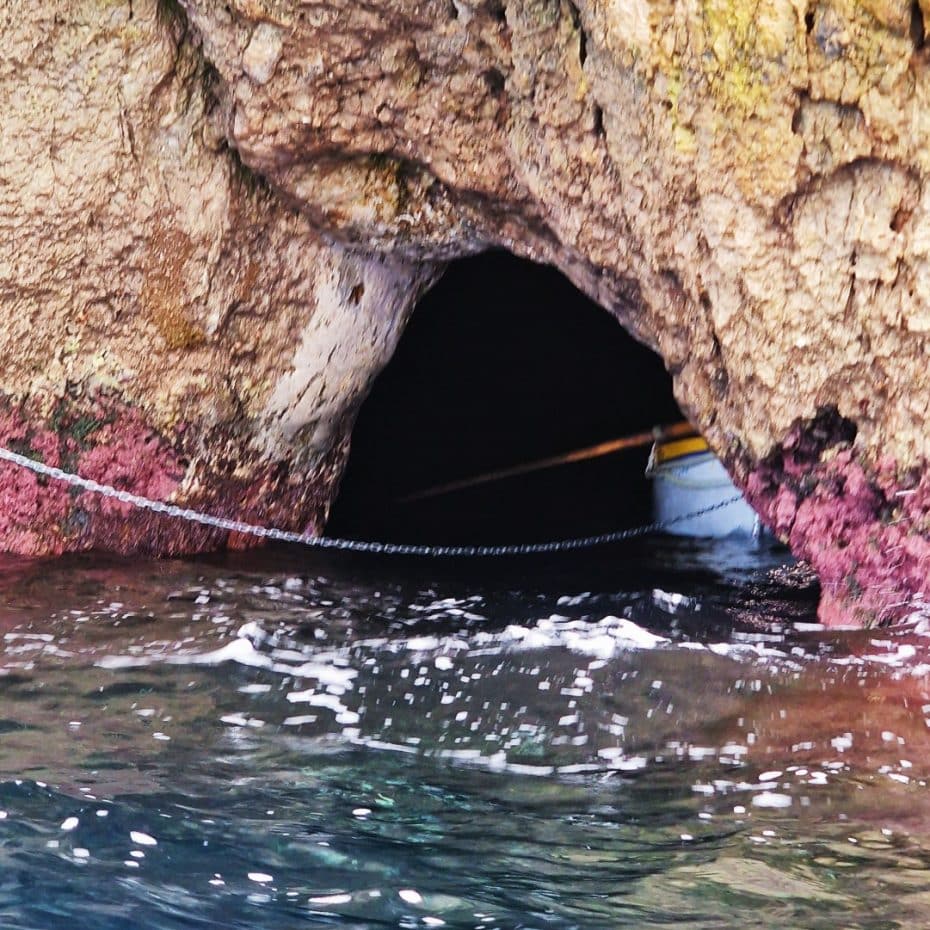
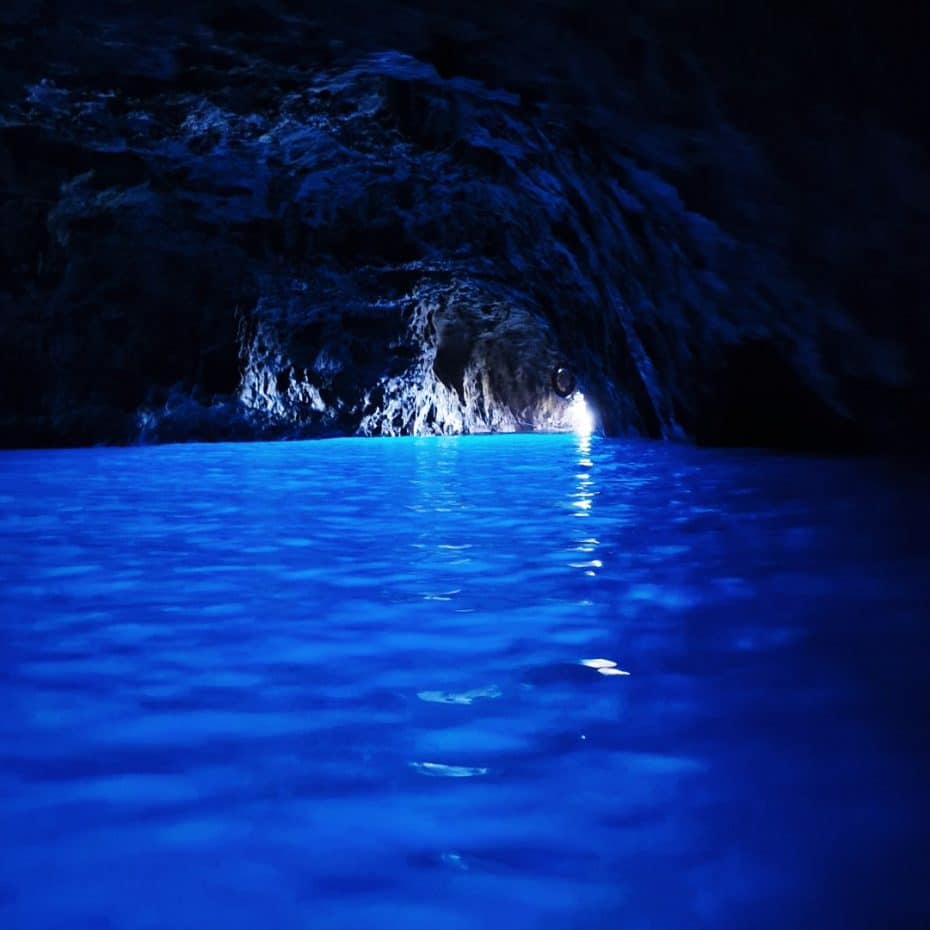
These two light sources create a wonderful effect where the shimmering waters at the bottom of the cave contrast with the cavernous darkness above the surface.
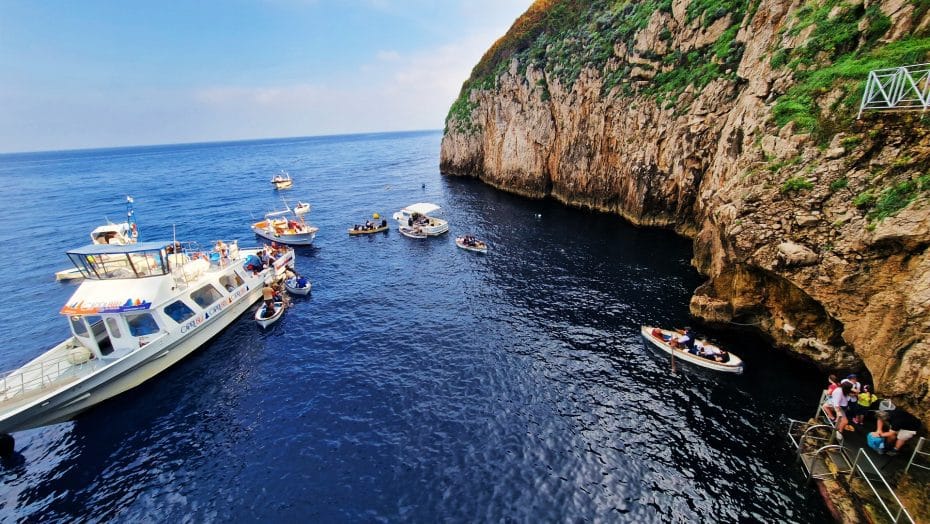
Most tours to visit the grotto depart from Marina Grande and last about an hour. However, the Grotta Azzurra can be difficult to visit. Why? To enter the cave, the sea must be absolutely calm.
Once you arrive at the Blue Grotto, you change boats and visit the cave’s interior with a traditional rowing boat.
4. Faraglioni di Capri
Famous worldwide, thanks partly to suggestive Dolce & Gabbana ads, the Faraglioni are three rock formations located in the southeast of the island.
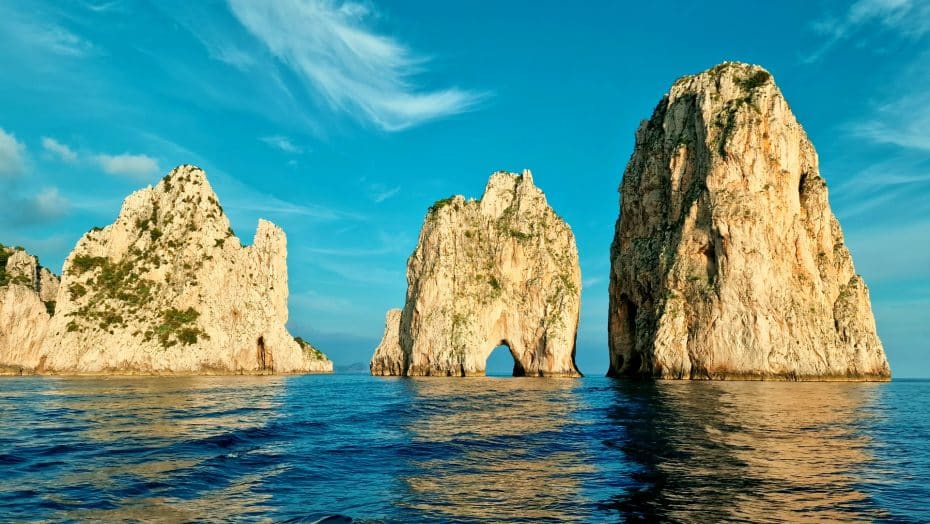
Three different names identify these geographical features: the first one, linked to the mainland, is the Faraglione di Terra; the second, separated from the first by the sea and with a natural arch in its centre, is called Mezzo, while the third one, furthest away, is the Faraglione di Fuori. The latter is known to be the only habitat of the blue lizard.
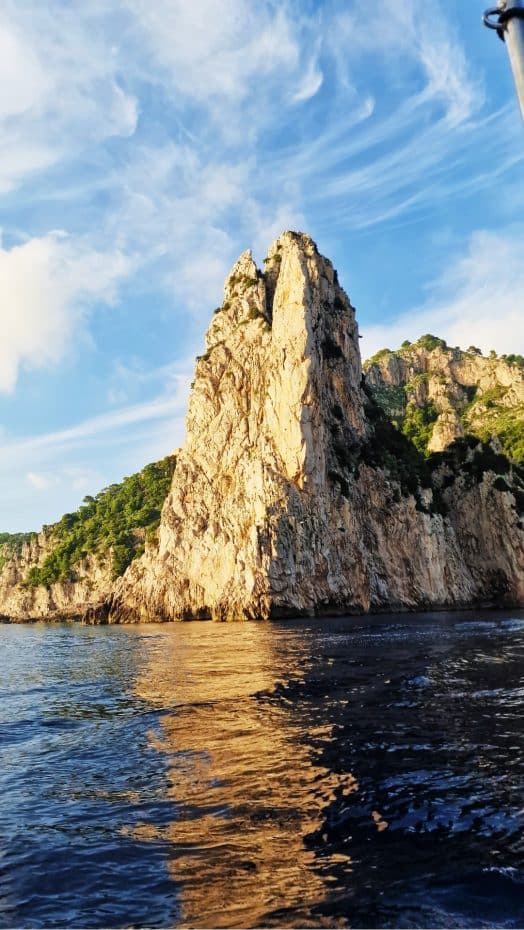
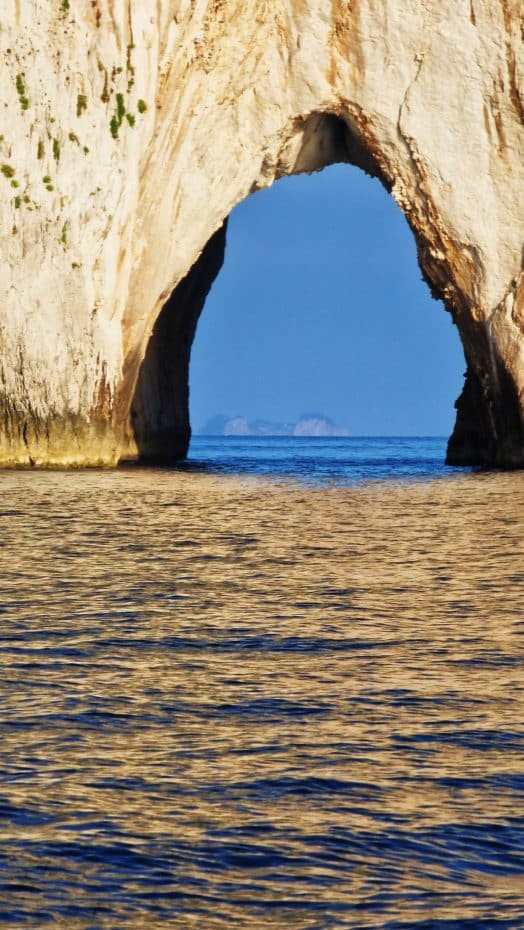
In addition to their official names, each cliff receives a more poetic local name. Thus, Terra is known as Stella (star), Mezzo is Saeta (arrow), and Fuori is Scopolo.
5. Gardens of Augustus & Via Krupp
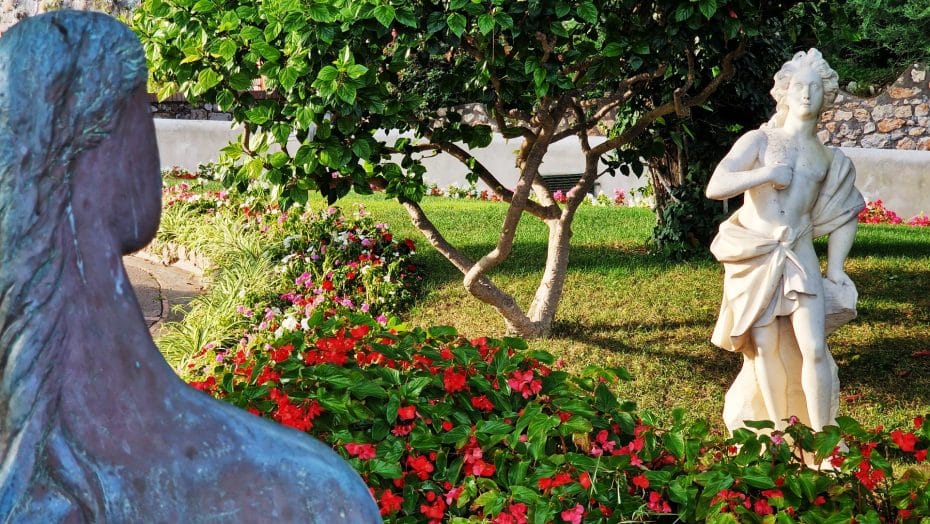
The Gardens of Augustus are one of the most beautiful points to photograph Capri’s Faraglioni Rocks.
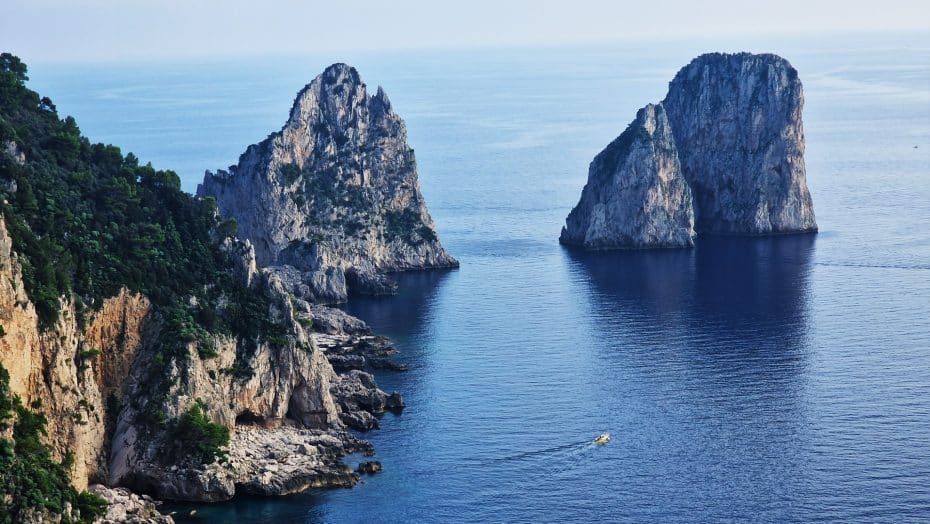
In addition, from the gardens, you can also catch a glimpse of Via Krupp. This zigzag panoramic path descends vertiginously on the rock and connects the gardens of Augustus with the coastal area of Marina Piccola.
The street’s name is linked to German steel magnate Friedrich Alfred Krupp, who lived in the centre of Capri and had his yacht moored in Marina Piccola below. In 1899, he bought land to build a road to easily access Marina Piccola from the historic centre.
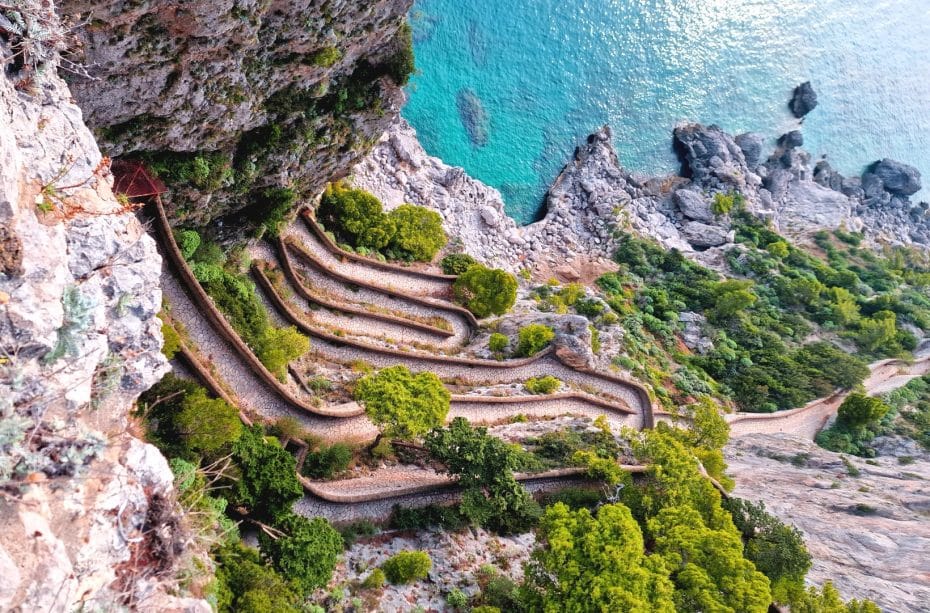
The road, cut directly into the limestone rock, meanders for 1.3 kilometres and has a drop of one hundred metres.
6. Villa Jovis
Villa Jovis is the most important archaeological site on the island of Capri. It is located in the easternmost part of the island, 354 metres above the sea on Mount Tiberius.
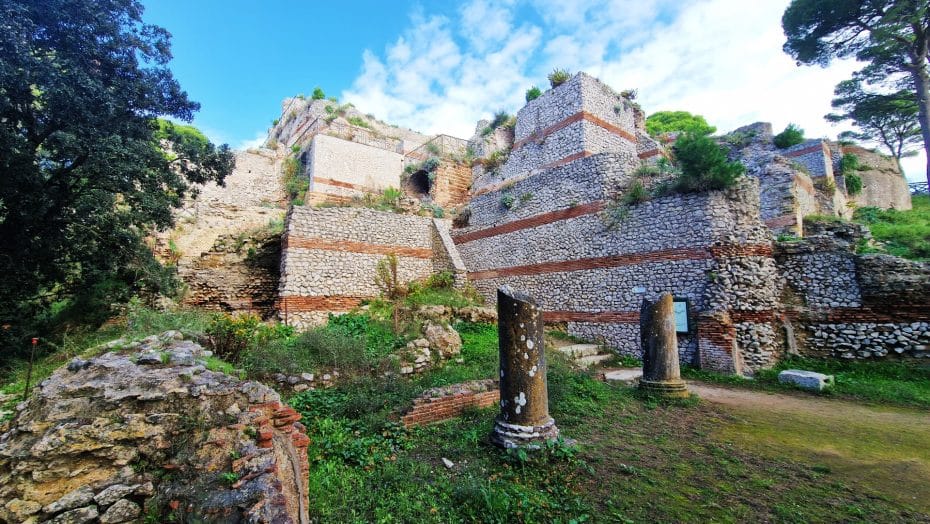
This ancient villa is famous because it was inhabited by the Roman Emperor Tiberius Julius Caesar Augustus from 26 to 37 CE. This means that, for 11 years, Capri, and not Rome, was the de facto capital of the Roman Empire.
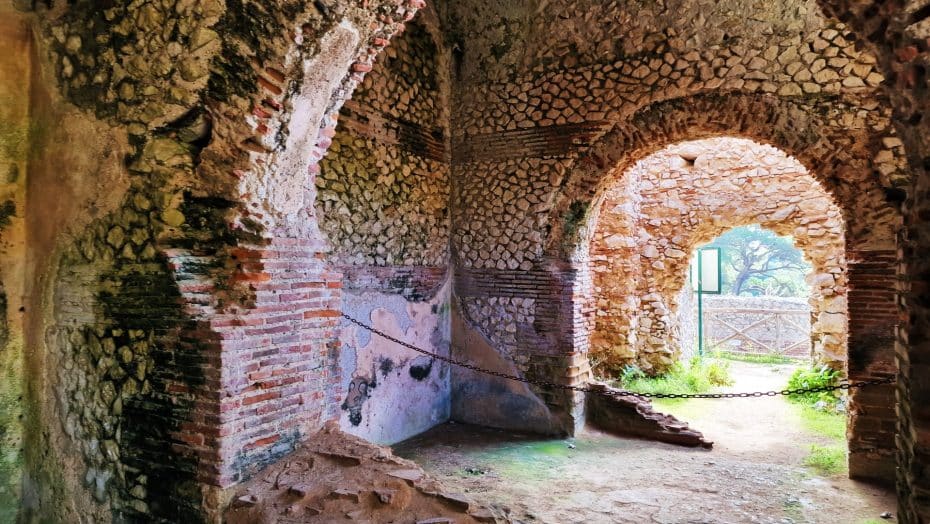
Villa Jovis was the main of twelve villas Emperor Tiberius ordered to be built on Capri. It occupied an area of about 7,000 square metres in a strategic position, allowing it to dominate a large part of the Gulf of Naples. The construction, halfway between a typical Roman villa and a fortress, was abandoned after the death of Tiberius.
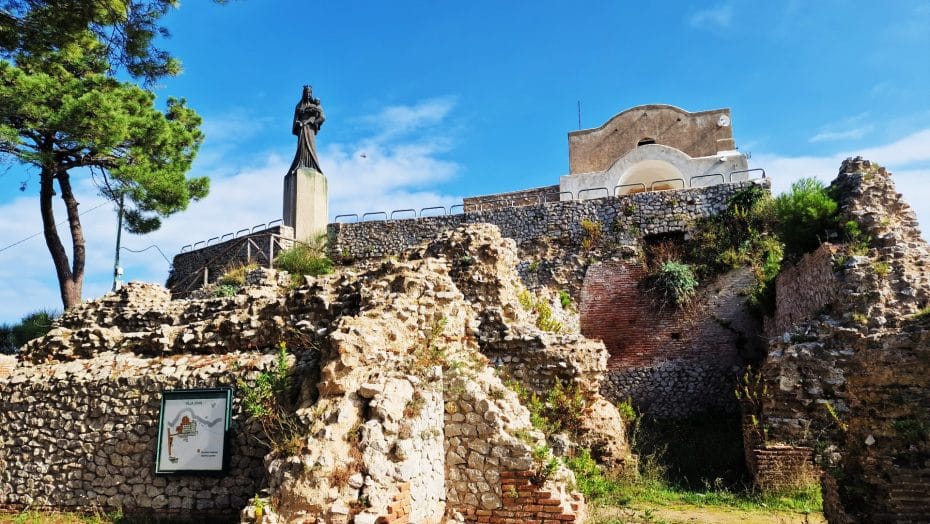
It wasn’t until the 18th century when King Charles of Bourbon decided to use the villa as a quarry to extract its materials and reuse them in his villas and other buildings.
7. Lighthouse Tower & Parco Astarita
Emperor Tiberius used the Lighthouse Tower to communicate with the other outposts on the Sorrento Peninsula and the Gulf of Naples. These communications, made through light signals, allowed him to rule the empire for eleven years without leaving Capri.
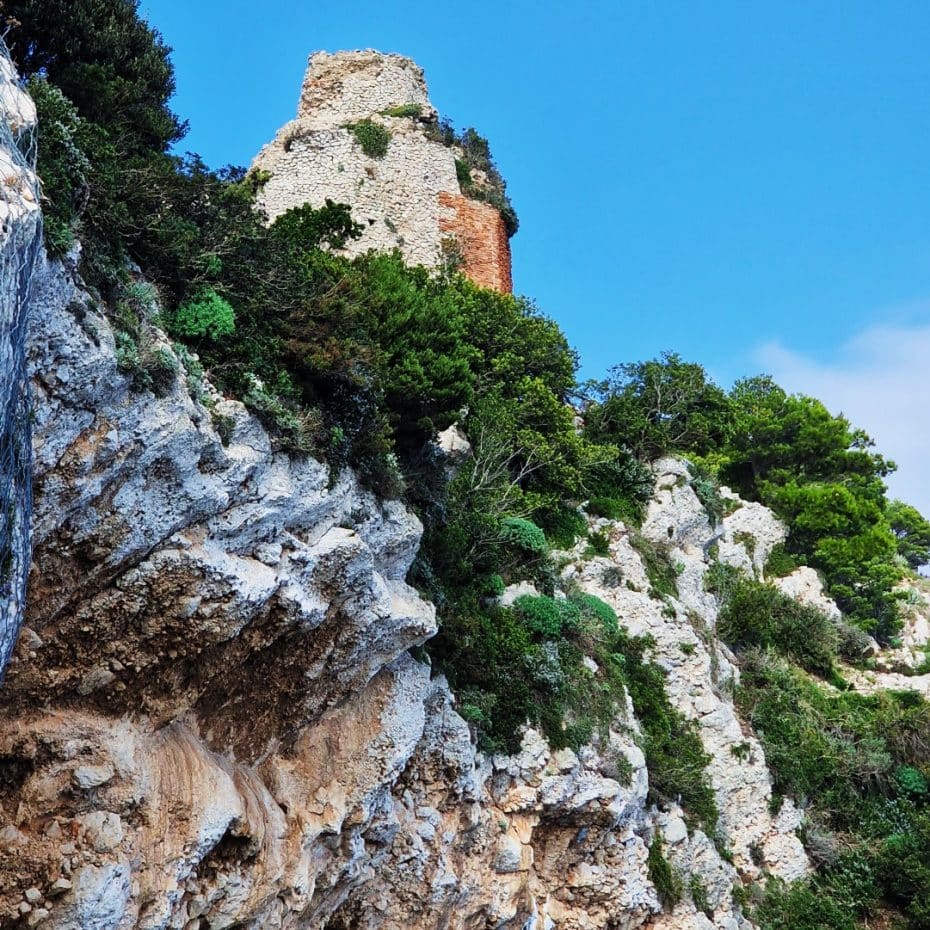
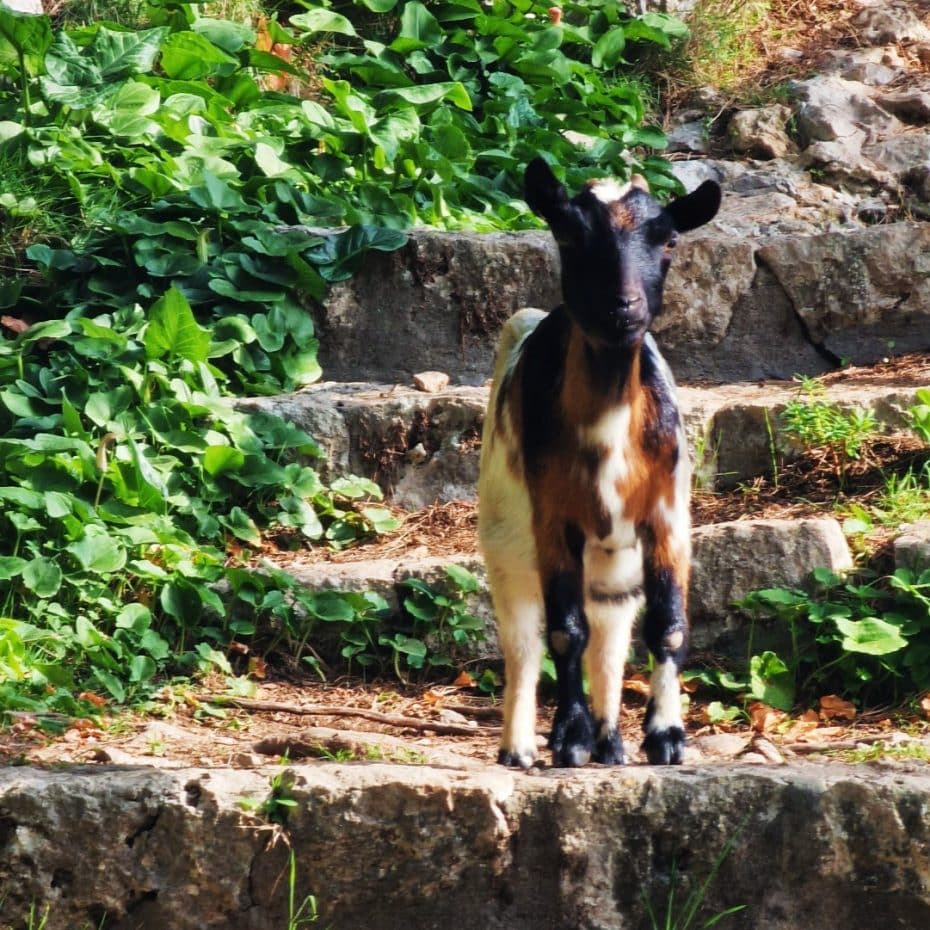
Because of an earthquake, the Tower of the Lighthouse collapsed in 37 CE, a few years before the emperor’s death. It was quickly rebuilt and continued to work throughout the Middle Ages, thanks to the hermits who lived in the small church at Villa Jovis.
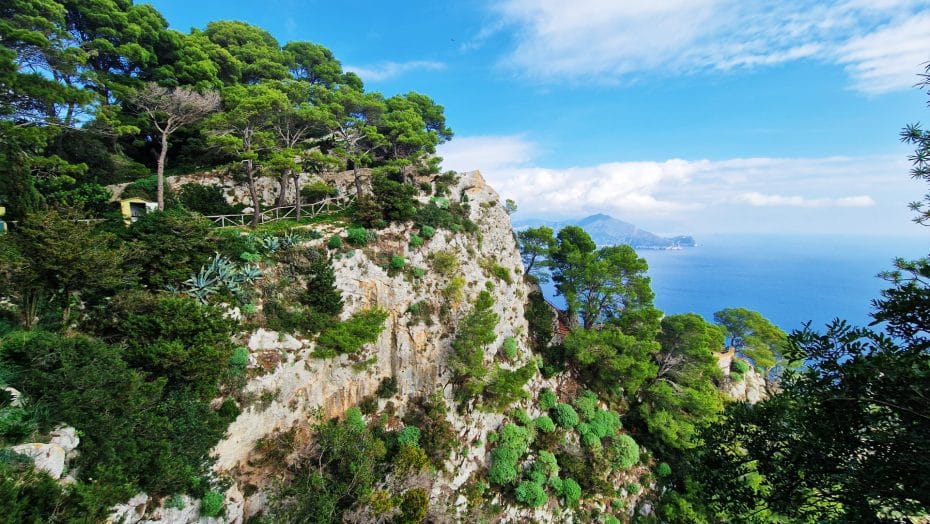
Next to Villa Jovis and the lighthouse is Astarita Park, one of the most beautiful places in Capri. It was commissioned by Mario Astarita, an art collector and banker who came to Capri in the 1920s and fell in love with the island, choosing it as his home.
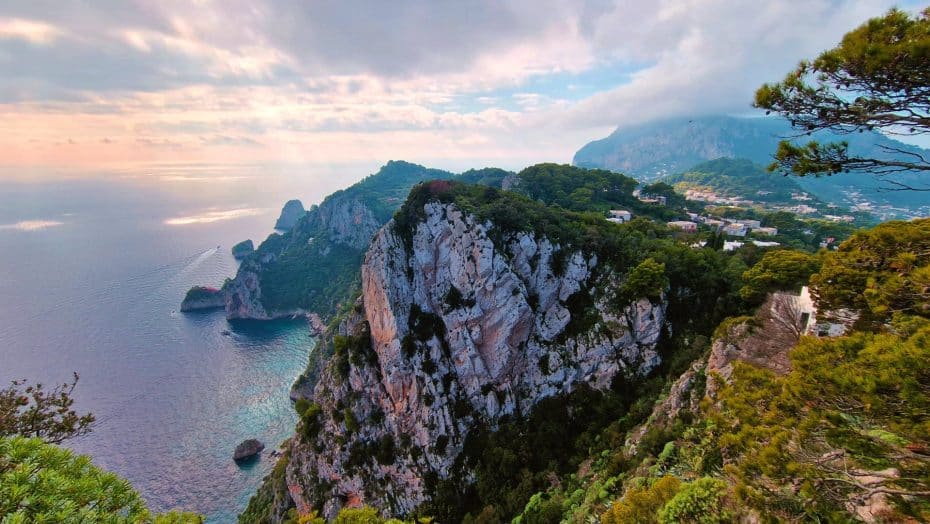
Quiet and not very touristy, Parco Astarita is one of Capri’s best-kept secrets. From here, you can enjoy exceptional views of the Faraglioni, the Gulf of Naples, the Sorrento peninsula, the Amalfi coast, and the Li Galli archipelago.
8. Villa Lysis
Villa Lysis, also known as Villa Fersen, was designed at the beginning of the 20th century by Edouard Chimot at the behest of the young baron Jacques d’Adelsward-Fersen who turned it into his residence, furnishing it with objects he brought from his trips to the East.
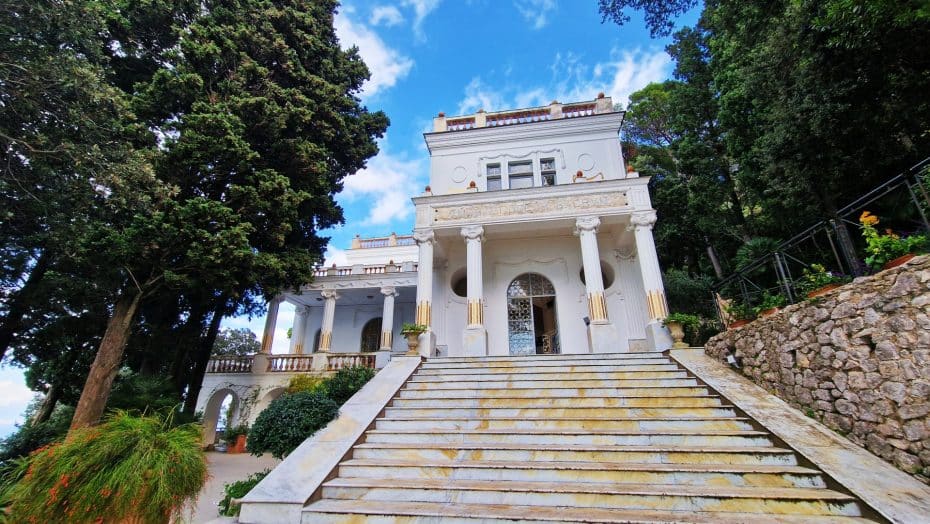
In Art Nouveau style and with neo-Gothic and neoclassical influences, the mansion is located on Tiberius Hill, in the northeastern part of the island, a few steps from Villa Jovis.
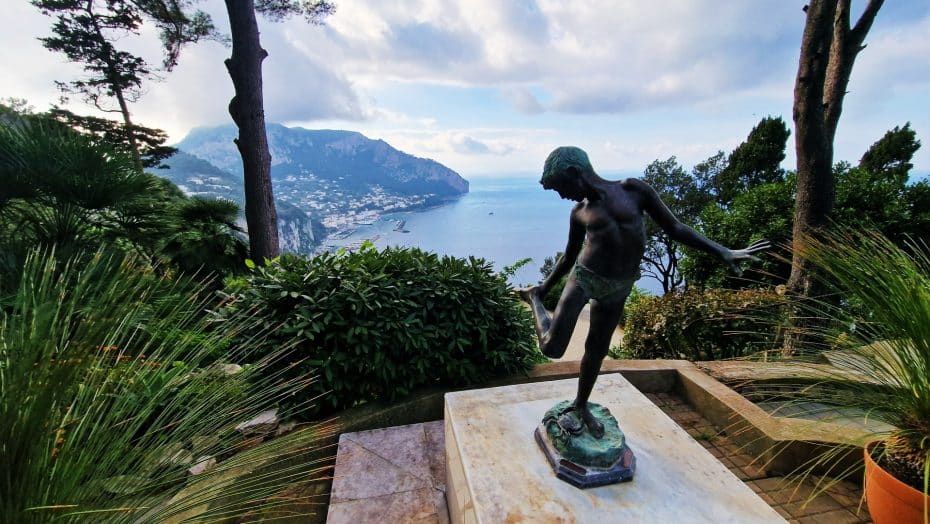
Villa Lysis is divided into three floors. The ground floor was used for the gallery, the living room and the library. The upper floor houses the bedrooms of Baron Fersen and his partner, Nino Cesarini. Along the corridor are the guest room and the dining room. The basement holds the servants’ rooms and the infamous Chinese room, also known as the opium room.
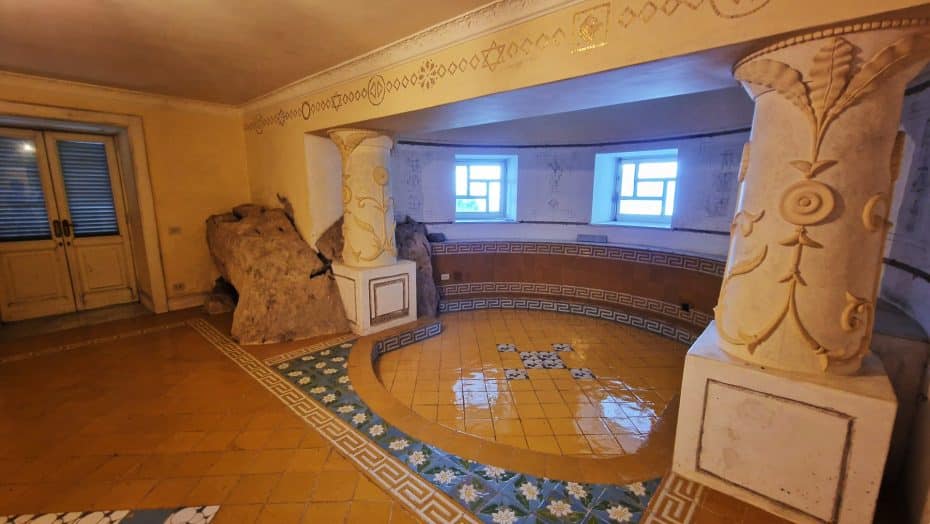
9. Marina Piccola
At the end of via Krupp is Marina Piccola, a small bay on the island’s south side. Famous for its splendid view of the Faraglioni, it is protected by Monte Solaro, which harbours it from the wind, making it one of the warmest and most popular beaches in Capri, even in winter.
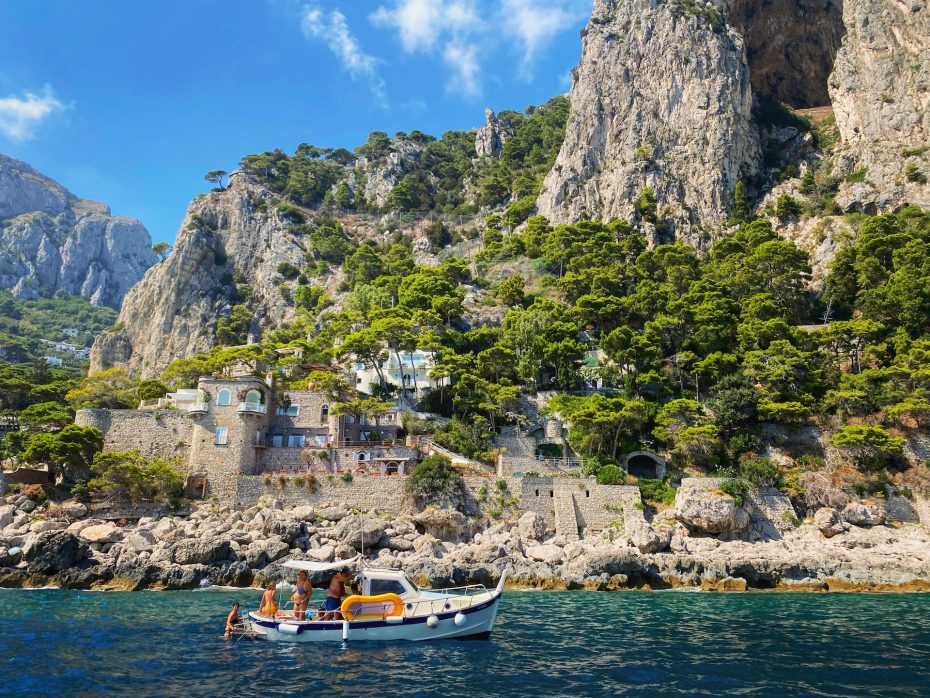
Among its most famous beaches is Scoglio delle Sirene. The beach gets its name from the mermaids who bewitched Ulysses in The Odyssey.
The area has two free beaches: Marina di Pennauro and Marina di Mulo. If you visit during the warm season, you should arrive early in the morning to ensure a good spot.
Keep in mind that since Marina Piccola is located on the island’s south side and in the shadow of Monte Solaro, the sun goes down around 4:00 p.m.
Marina Piccola is one of the best areas to find accommodation in Capri.
10. Anacapri
Anacapri is completely different from the flashy Capri. It is a quieter and more reserved town that hides unexpected attractions.
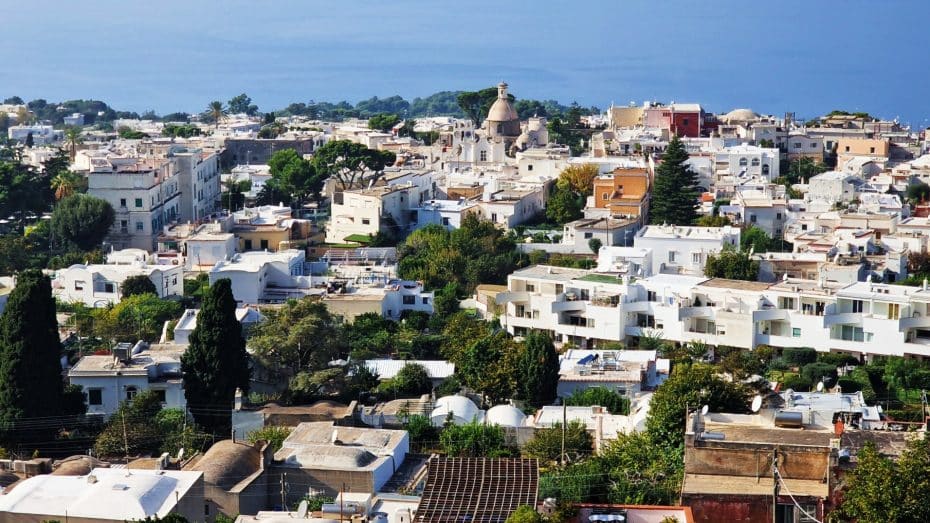
The main attractions of Anacapri include the Church of San Michele, which has a marvellous majolica floor inside, the Casa Rossa, a splendid villa from the end of the 19th century with a gallery of works representing the island, and the Villa di San Michele, a house-museum built at the end of the 19th century by the Swedish physician and author Axel Munthe.
Finally, you can’t miss Monte Solaro, connected to Anacapri by a chairlift system.
11. Monte Solaro
Continuing with the list of attractions in Capri, we recommend you take the chairlift connecting Anacapri to Monte Solaro. It’s the easiest way to get to the top of the hill if you don’t suffer from vertigo.
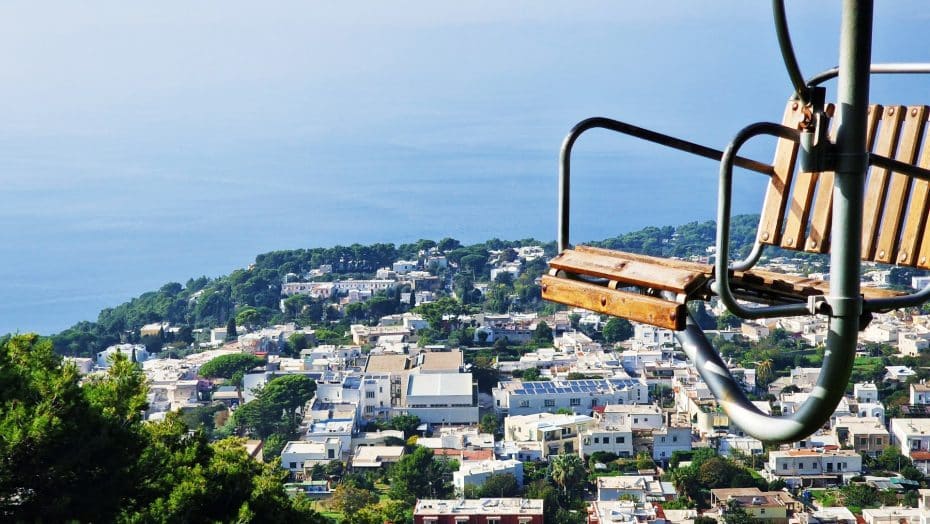
The reason to climb Monte Solaro is simple: the views are exceptional, and the panoramic terrace offers views over the entire Gulf of Naples, Mount Vesuvius, the Amalfi coast and the marvellous Faraglioni.
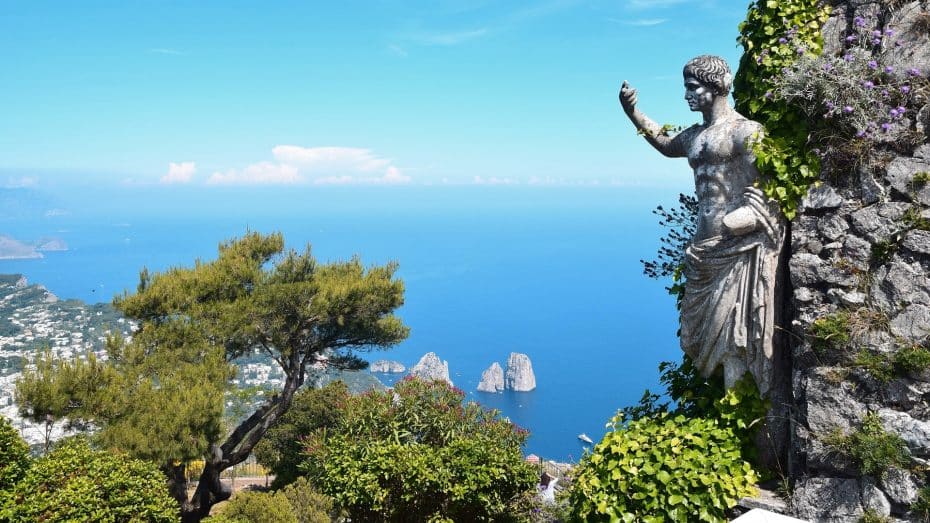
12. Arco Naturale
Arco Naturale is, as its name implies, a natural rock formation in the shape of a perfect arch.
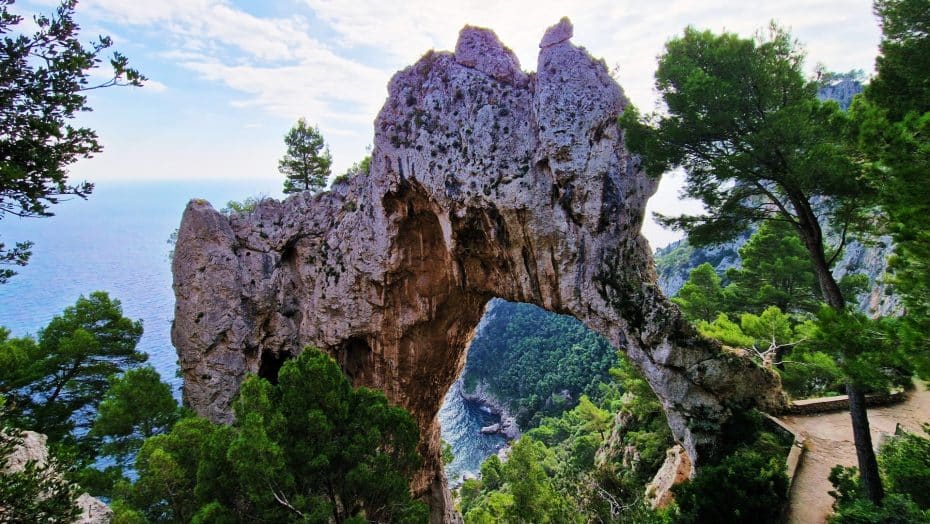
Over millions of years, erosive processes on this limestone formation have resulted in a 12 metres-wide and 18 metres-high structure, a clear example of how nature is a true masterpiece.
The arch is located at the eastern end of the island, where you can enjoy the view of the Sorrento peninsula and the Li Galli islands. The arch dominates an area called “O’ Funno”, a bathing area frequented by the locals.
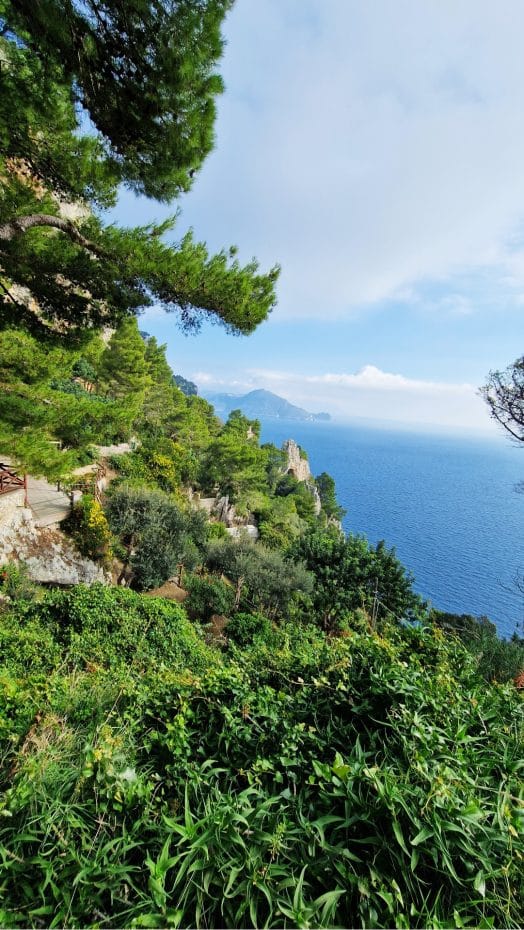
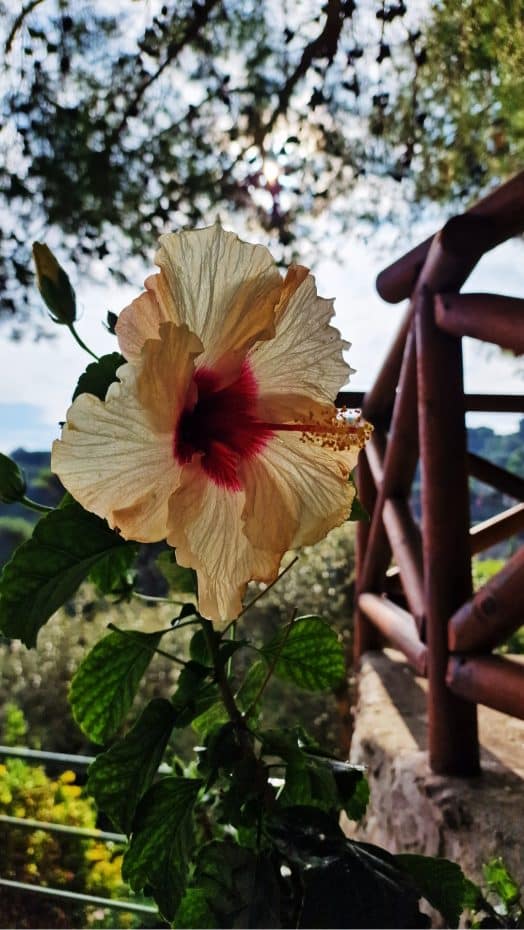
You can access the Arch thanks to many signposted trails with viewpoints over the spectacular natural landscape.
13. Chiesa di San Michele alla Croce
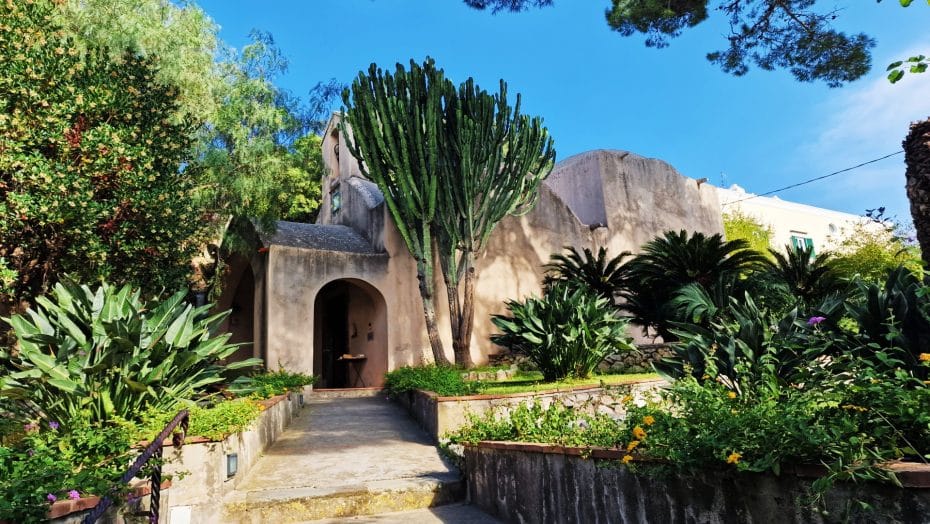
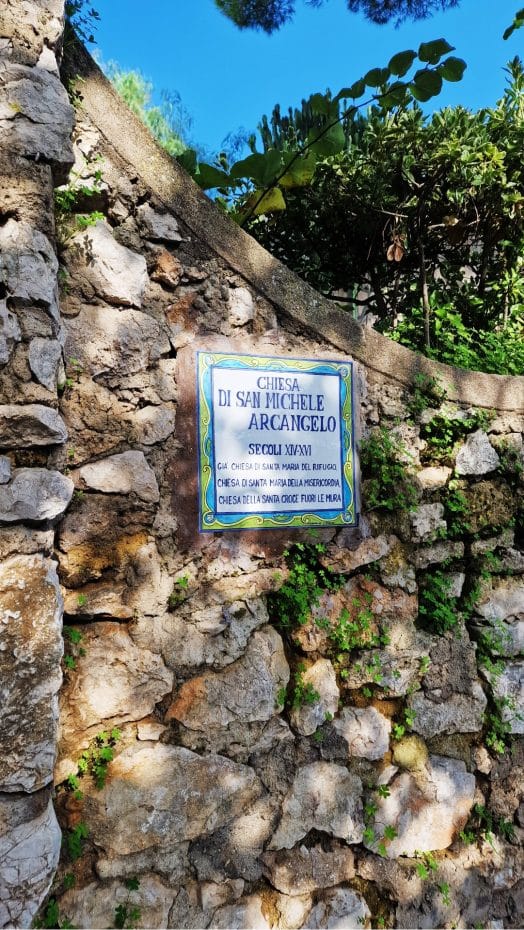
The church and the neighbourhood in which it is located take the name “della Croce” from the large cross that dominates the hill. The church’s structure is very particular for its sinuous and smooth forms. It was built in successive periods: the original part dates back to the 12th century and was dedicated to Santa Maria del Rifugio, since it served as a refuge during pirate raids.
The church of San Michele alla Croce did not always serve as a church; at the beginning of the 19th century, it was used as a powder magazine by the English, who had their fort right on the hill above.
14. White Grotto
Grotta Bianca, also known as Grotta della Madonna, is another sea cave you can discover on a boat tour.
This grotto is peculiar due to its many stalactites and stalagmites. Among all the formations in the cave, there is one whose shape resembles that of a praying Virgin, hence the name Grotta della Madonna.
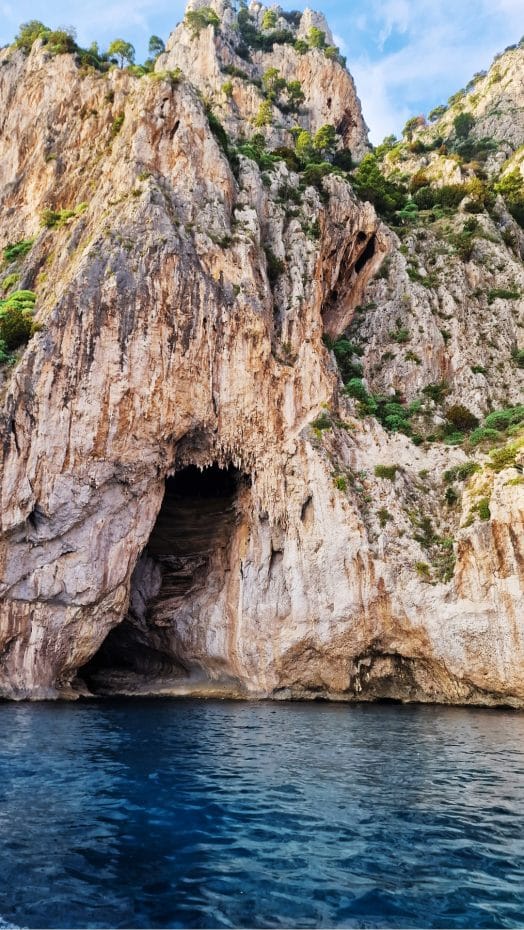
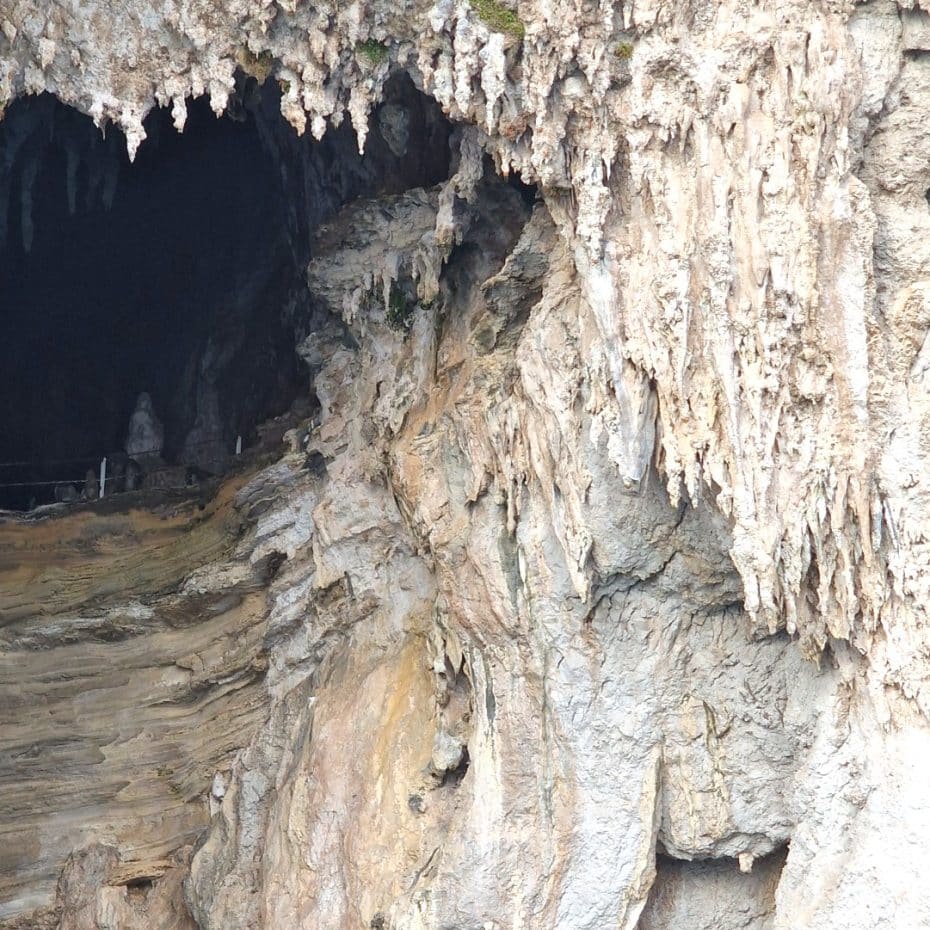
The White Grotto is on the island’s east side and has been made accessible thanks to the waters of the sea that, by eroding the rock, opened up the cave. The inlet extends some 30 metres and has two interconnected lakes.
This space was already known in Roman times when it was used to shelter unused boats. It was also used as a refuge from pirate attacks by the Caprese during the 17th century.
15. Capri Shopping Streets
If you like fashion, Capri is a perfect destination.
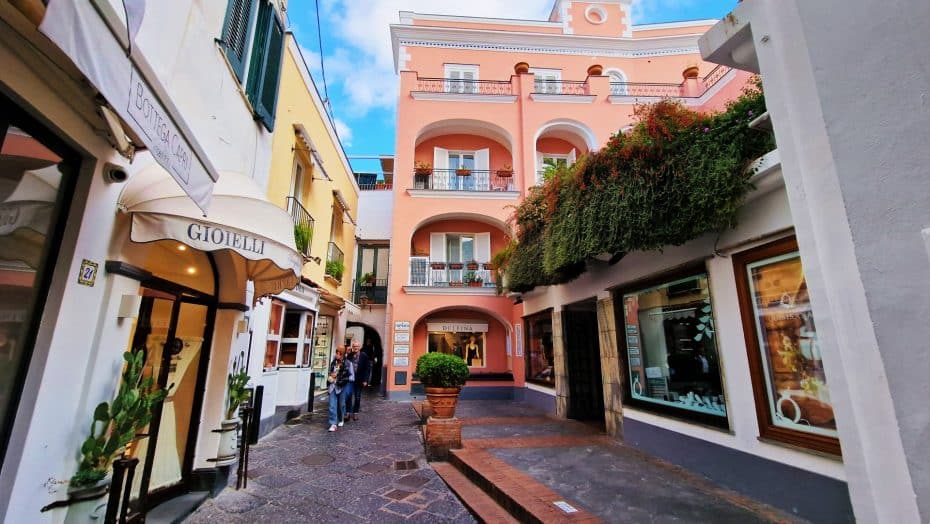
The whole island is full of boutiques. From the most famous high-end brands to lesser-known local retailers, you’ll find what you’re looking for. The main shopping streets in Capri are Camerelle and Le Botteghe, both are just a short walk from the Piazzetta.
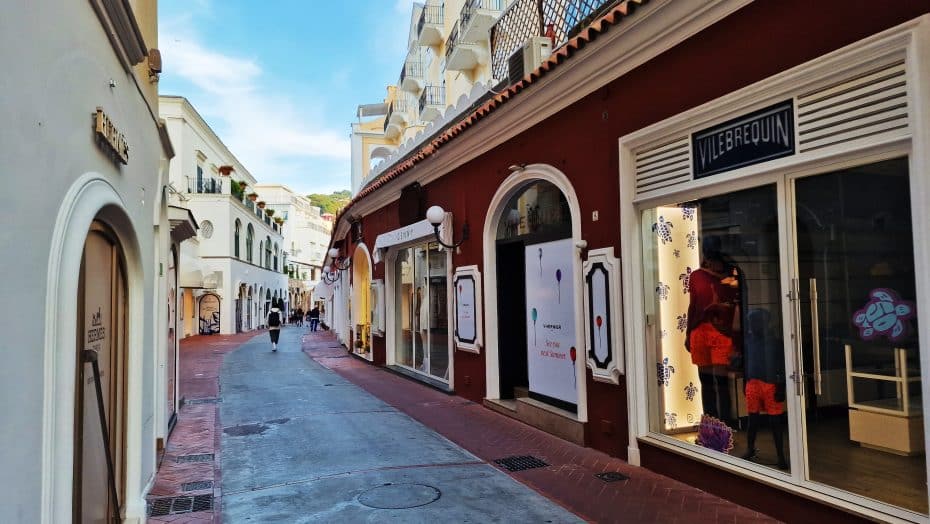
In addition to haute couture, perfumes, leather sandals, toquilla straw hats, and historic capri pants are among the most popular products you can buy. The island’s most popular souvenir is a lucky charm called the Bell of Capri. Foodies will surely want to take home a hand-painted bottle of limoncello.
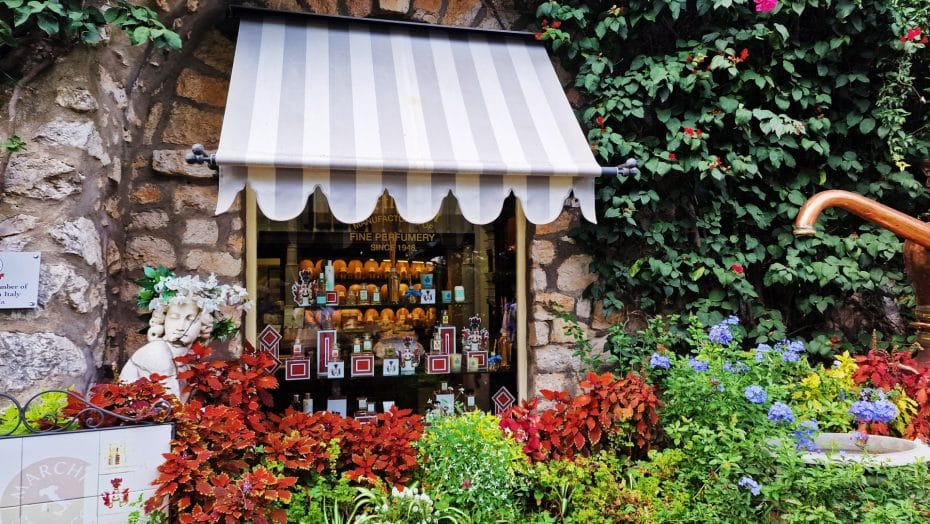
16. Narrow Streets in Capri’s Historic City Centre
One of the best things to do in Capri is to get carried away by its attractive alleys and charming corners. After all, a visit to Capri doesn’t have to consist entirely of great attractions and spectacular views.
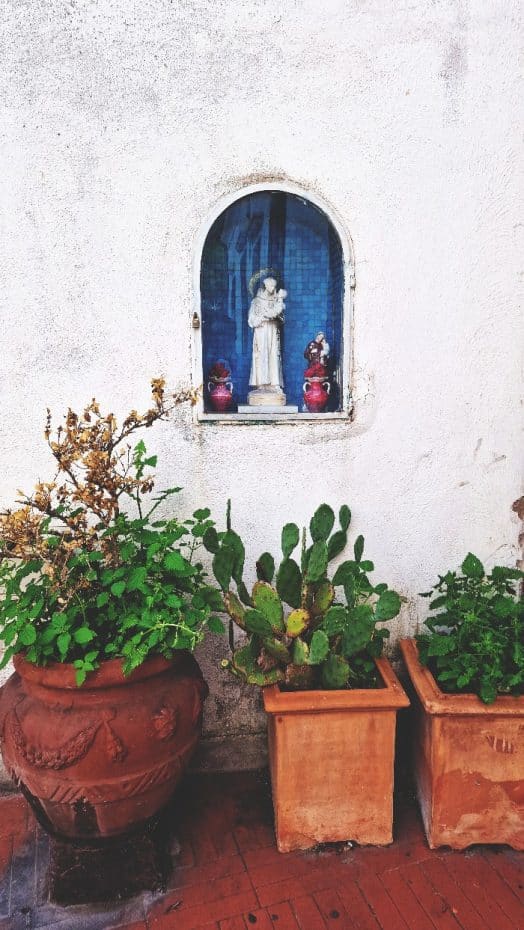
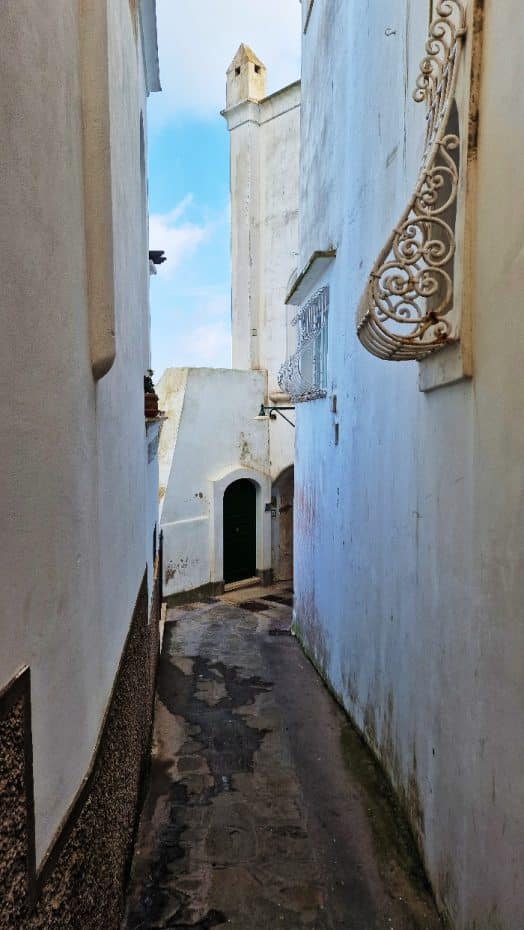
During the summer, the narrow streets of Capri are literally swarming with tourists. At the same time, they are more liveable in the spring and autumn months. In winter, however, almost everything related to tourists closes its doors completely.
Although Capri is primarily known for its luxury and exclusive lifestyle, its steep back streets offer a glimpse of its historical flavour with its whitewashed houses decorated with large vases and succulent plants.
17. Grotta Verde
Another stop on our Capri island boat tour is the Green Grotto, named after the particular colour of the sea at the bottom of the cave. This evocative cave was already known in the 16th century when it was called Grotta dei Turchi (of the Turks) because pirates used it to hide and plunder passing ships.
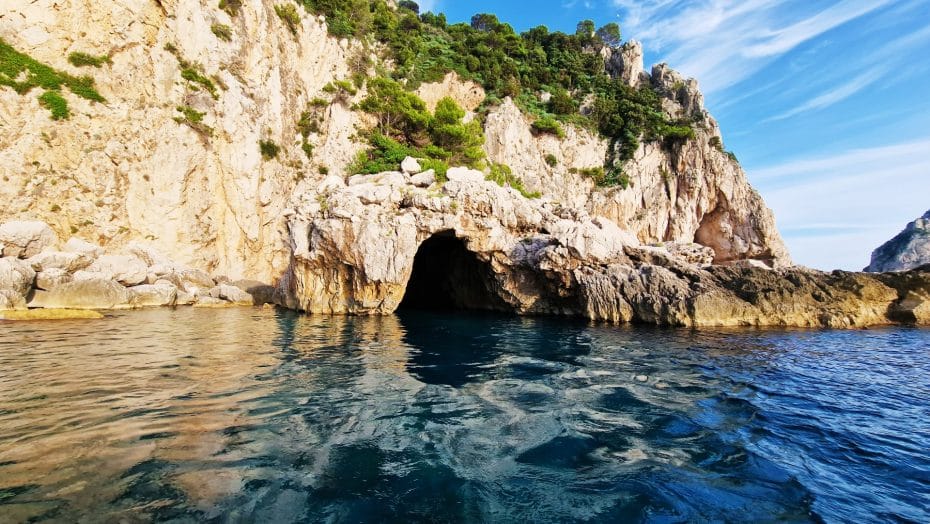
While the Blue Grotto is served by small boats that take you inside, the only way to access the Green Grotto is by private boat or swimming. Its walls have an irregular shape carved into the sedimentary rock, and its openings to the outside give the water the green colour that gives it its name. This colour is already visible from the outside of the cave.
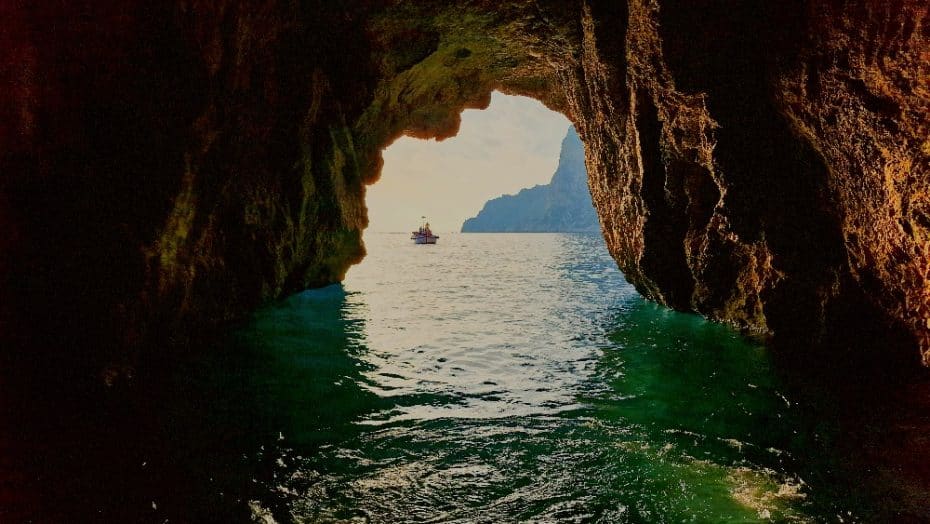
18. Punta Carena
Punta Carena is ideal to enjoy a sunset over the sea and a romantic evening.
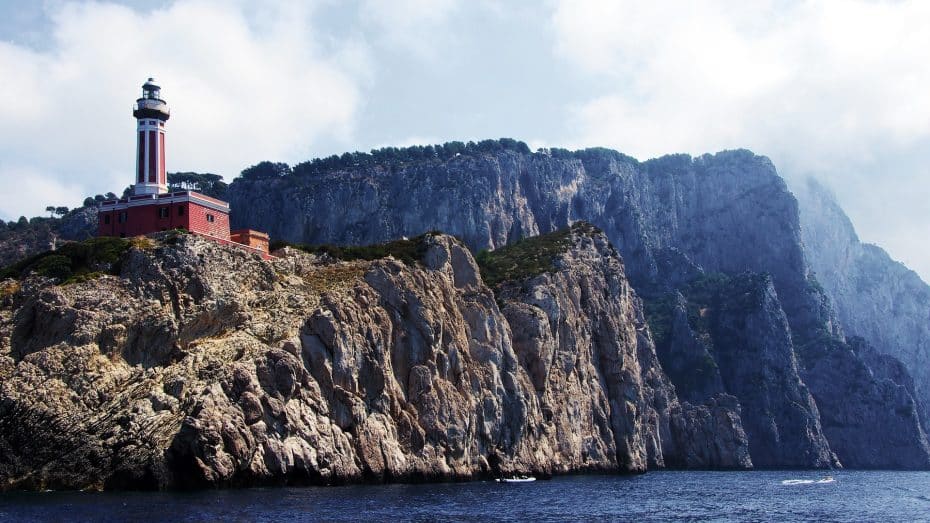
Punta Carena is also where you can enjoy the most beautiful sea thanks to its clear water that is always clean. It is one of the main beaches of Capri.
The Punta Carena Lighthouse, inaugurated in 1867, is one of the oldest modern lighthouses in Italy.
19. Chiesa di Santo Stefano
The Church of Santo Stefano is the largest religious building on the island and stands on the site of an earlier church dedicated to Saint Sophia and a 6th-century Benedictine monastery.
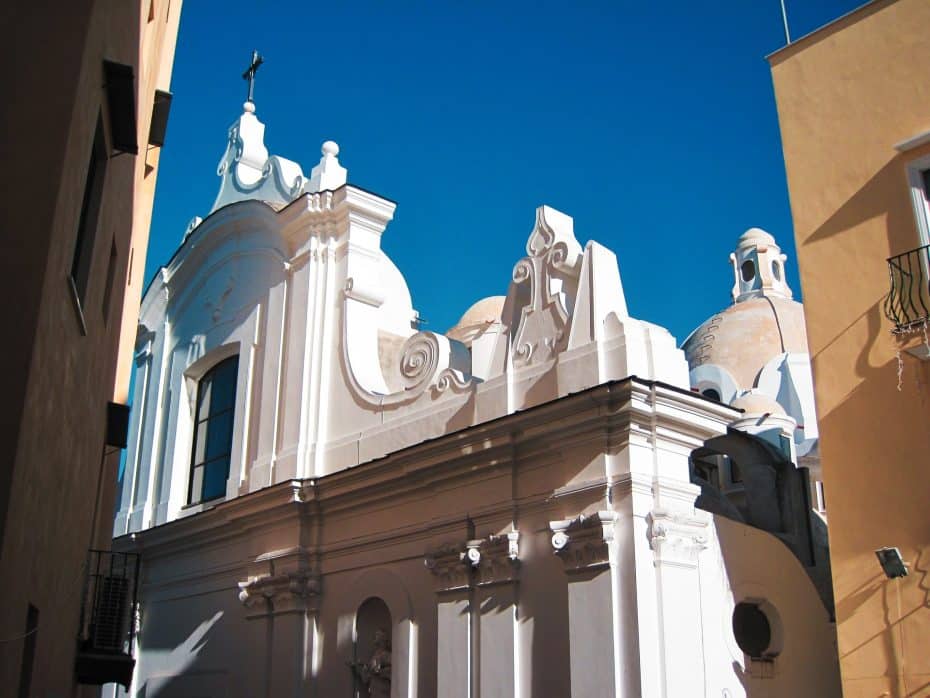
The church is divided into three naves and has a Latin cross plan. The central nave is closed by a barrel vault. There is a large dome at the junction between the transept and the main nave.
The part of the main altar is characterized by various materials recovered from other buildings on the island of Capri. For example, the floor comes from Villa Jovis, while the yellow marble column was taken from the church of San Costanzo.
20. Certosa di San Giacomo
Another must-see attraction in Capri is Certosa di San Giacomo. It s located a few steps from the main square.
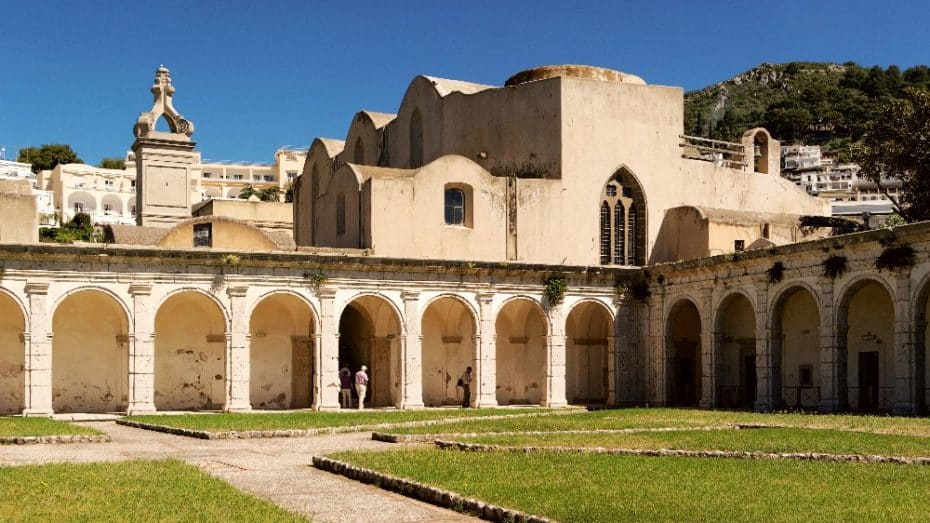
The visit, which lasts about 45 minutes, includes an audio guide explaining the secrets of the oldest monastery on the island. Certosa di San Giacomo was built in 1371 at the request of Count Giacomo Arcucci.
Currently, it is possible to visit all its spaces and temporary exhibitions, as well as a museum dedicated to German painter Karl Diefenbach.
21. Convento di Santa Teresa & Chiesa del Santissimo Salvador
The convent of Santa Teresa and the adjacent church of Santissimo Salvatore are the medieval heart of Capri.
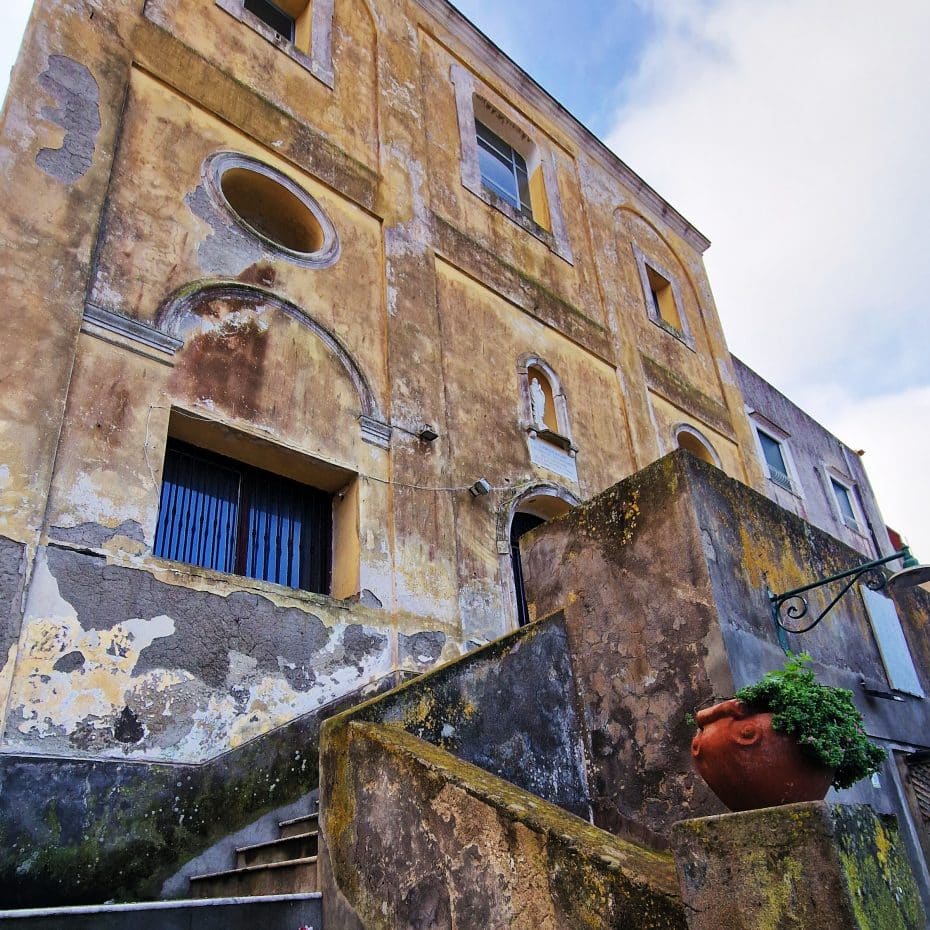
The warm-toned façade of the Church of Santissimo Salvatore is easily recognizable by the staircase in front of it. This Baroque-style church dates from the second half of the 17th century when it was built to serve the nearby convent of Santa Teresa. Outwardly, the façade is rather square and unadorned.
In contrast, the Convent of Santa Teresa was built in 1661, five years before the church, and housed numerous nuns. Here the spaces open up to a long and high portico guarded by thick vegetation. It changed its function several times throughout the centuries: from a convent to a barracks and a prison.
Read this article in other languages:
|ES| Qué ver en Capri, Italia: 21 atracciones imperdibles.


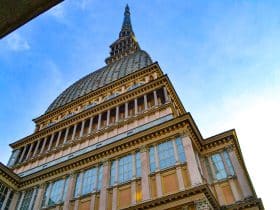
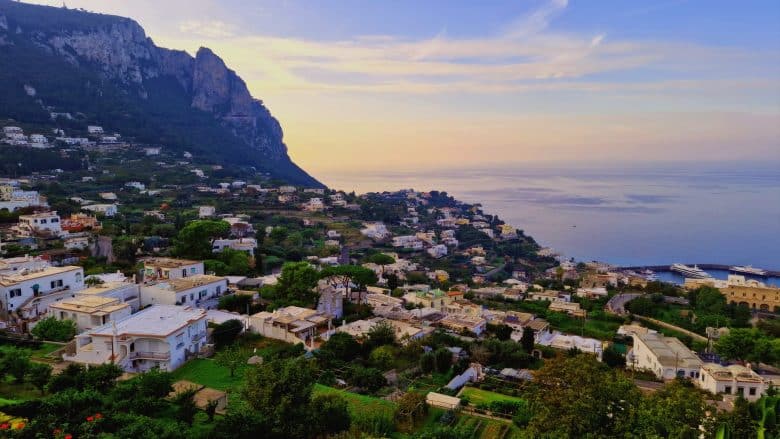
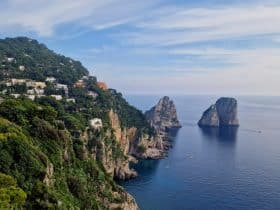
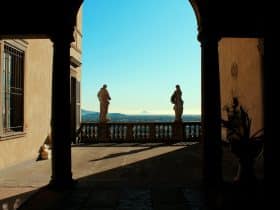
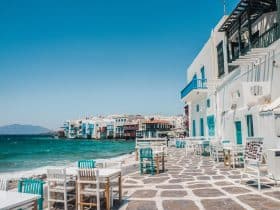
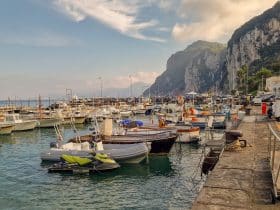
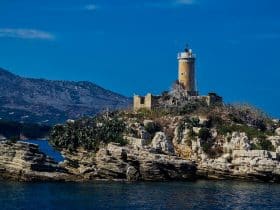
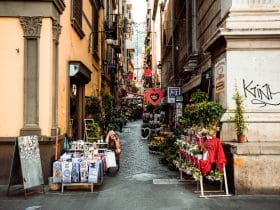

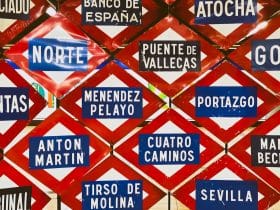
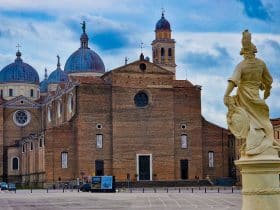

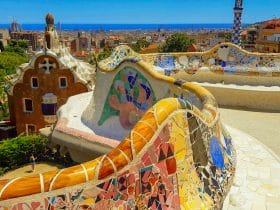
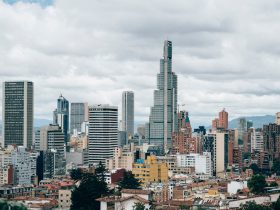
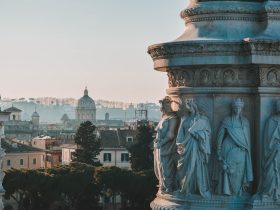
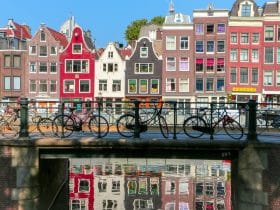
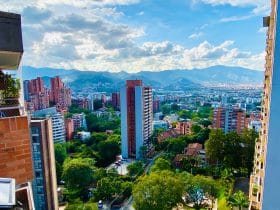
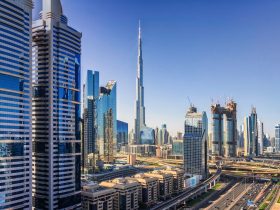
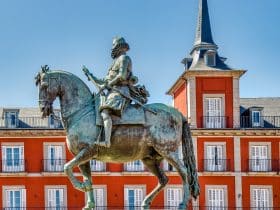
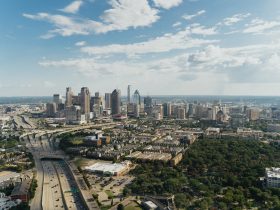
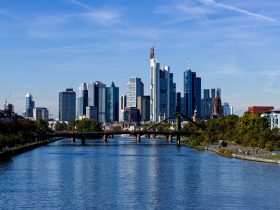
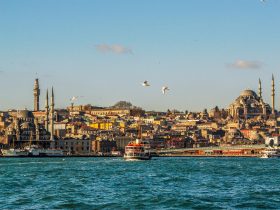


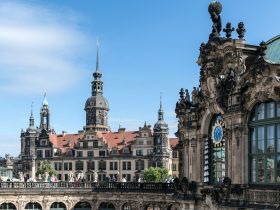
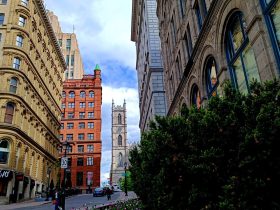
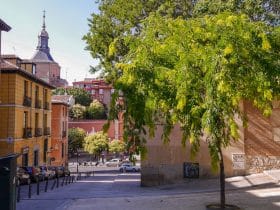
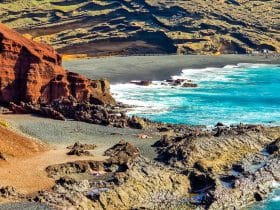
Leave a Reply
View Comments